Women Peace and Security October E-News 2016
Resilience, Resistance, and Hope: Reflections on Women's Peace Activism in Nigeria
By WILPF Global Programmes Director Maria Butler
WILPF Global Programme Director, Maria Butler, with local civil society representatives in Nigeria (Photo: WILPF Nigeria)
I met Zari for the first time outside the Swiss Embassy in Abuja, Nigeria on a hot morning. It was October 14 -- the morning after the release of 21 Chibok girls. I asked her about the news and the biggest smile came across her face. She was radiant. Happy.
Zari (Zariyatu Abubakar) is the geopolitical zone coordinator for WILPF-Nigeria for the region where Chibok is, and represents Women Care Foundation, a local organization working in conflict affected communities in the North East of Nigeria.
As geopolitical zone coordinator for WILPF-Nigeria, Zari is a critical part of the Women’s Situation Room Nigeria (WSRN). The WSRN aims to ensure that women can assume their roles in participating in and building sustaining peace in Nigeria during the next four years leading to the next general elections in 2019. It a strategy, a process for engagement and change building on the observational role and success of the WSRN during Nigeria’s 2015 elections, led by WILPF Nigeria and coordinated by the brilliant Joy Onyesoh. It is women like Zari and Joy who make UNSCR 1325 meaningful on the ground, and it is these women who the international community must do more to support.
Joy and Zari discussed women’s participation in conflict prevention with the international community working in Nigeria, with the knowledge that these young women and their families had some relief today for the first time in over 200 days. After a successful nonviolent mediation, there is now new hope of these families, the community, and indeed all of us, who share a sense of common humanity.
Many during my trip to Nigeria last week reminded me that Nigeria is a patriarchal society. (After the announcement of the 8th male UN Secretary General this month, the question is, what place isn’t?). However, in this West African nation, patriarchy is evidenced by many realities such as the gross underrepresentation of women in Nigerian politics. I asked a male member of the House of Representatives, “how many women are there in the House?” His response was “plenty!” Yet the reality is only 5.6 percent women are in the House of Representatives and 7.3 percent in the Senate. After the 2015 elections, WILPF Nigeria assessment showed that over 90 percent of the women candidates were eliminated during the political primaries – the pre-electoral period. The barriers and challenges are not unique to Nigeria but require concerted strategies worldwide.
The humanitarian and displacement crisis in the North is severe. Only a shocking 10 percent of the funds required to alleviate the crisis has been contributed. There is a critical need for more mobilisation to address immediate needs, social and economic marginalisation, and to provide support to the communities victimised by Boko Haram.
I thought often of resilience during this visit. many miles away but connected by our WILPF tribe, I thought of our sisters in Colombia who are organising and reorganising. the realities of the no vote in the referendum and increased security challenges.
As Member States meet next week for the 16th anniversary of 1325 and the annual open debate, I will celebrate resilience and hope of women like Zari and Joy. And the resilience and hope of the Chibok girls.
WILPF at the 16th Anniversary of UNSCR 1325
By Sarah Tunnell and Naimah Hakim
Participants of a WILPF Workshop organised at last year’s 15th Anniversary of 1325. (Photo: Ashish Mahajan)
It is just one week until the anniversary of Security Council Resolution 1325! We stand in solidarity with civil society worldwide in calling for action on the 2015 High Level Review and Global Study on Women, Peace and Security. It is critical to strengthen action to close the accountability gap and to strengthen conflict prevention, including disarmament, and to move from commitments to accomplishments.
In connection with the 16th anniversary, WILPF is hosting a delegation of three human rights activists from Yemen, Libya and Syria. We will also support a civil society speaker with the NGO Working Group on Women, Peace and Security at the annual Security Council Open Debate on Women, Peace and Security and, as always, monitor the debate.
As part of our work to strengthen accountability, we will also launch a Security Council Women, Peace and Security Scorecard.
We will contribute to a variety of other events as well. Join us!
Wednesday October 19th (9:00AM): "Measuring State Commitments to Women, Peace and Security: Launch of WILPF's Expanded WPS Security Council Scorecard" (WEBINAR);
Monday, October 24th (9:00AM): “From destabilising violence to inclusive peace: Local to Global Conversations" (Internal WILPF Workshop);
Monday October 24th (4:00-5:30PM): “Connecting Grassroots and International Efforts for Action on Women, Peace and Security: Leveraging our Local to Global Movements” (Check out the event page here);
Wednesday, October 26th: "Closing the Gap: How to Connect Grassroots and International Efforts to Enhance the WPS Agenda" (Closed Roundtable);
Wednesday & Thursday, 26th and 27th October: "Masculinities, Youth and Violence in Crisis Settings" (Check out the event page here);
Thursday, October 27th (1:00-2:30PM): “Financing the Women, Peace and Security Agenda: Good Practice and Lessons Learned for Accountability and Implementation” (Check out the event page here.)
Find more information about the debate here.
Find more information about WILPF action around the 16th Anniversary of UNSCR 1325 here.
Measuring State Commitments to Women, Peace and Security: Launch of WILPF's Expanded WPS Security Council Scorecard
By Marina Kumskova and Kathryn Krueger
Iwad Elman of the NGO WG on WPS and Kyung-wha Kang, ASG for Humanitarian Affairs and Deputy Emergency Relief addressing the Security Council debate (Photo: UN Photo/Loey Felipe)
As leaders on peace and security, Security Council members have a particular responsibility for action on the Women, Peace and Security (WPS) Agenda. However, the Permanent Five -- United States, United Kingdom, France, Russia, China -- are also some of the top contributors to the global arms trade, which directly contributes to sexual, gender based, and other forms of violence.
As part of WILPF’s work to hold governments accountable for the failures to implement the WPS agenda in a holistic manner, WILPF PeaceWomen is launching an expanded WPS Scorecard to track and assess efforts made by the Permanent Five in regards to implementing and upholding the WPS agenda, especially in the area of conflict prevention.
Join us at the webinar on 19 October 2016 to explore how disarmament and de-militarisation are critical components of preventing conflict and violence against women and learn how activists can use WILPF’s expanded Security Council Scorecard for holistic implementation of the WPS agenda.
Register for the 9:00AM ET October 19th Webinar and Scorecard Launch here.
Read the Scorecard press release here.
Find the full Women, Peace and Security Security Council Scorecard here.
Inside the 71st UN General Assembly
By Farida Ismail
Secretary-General Ban Ki-moon, meets with Kolinda Grabar-Kitarović, President of the Republic of Croatia. (Photo: UN Photo/Kim Haughton)
The United Nations General Assembly's 71st session (UNGA 71) general debate took place 20-26 September 2016. The debate provided an opportunity for world leaders and civil society organisations to evaluate progress one year on from adoption of the 2015 Sustainable Development Goals (SDGs) within the context of other milestones including the three 2015 peace and security reviews.
Spotlighting examples of persistent inequality around the globe and highlighting failures to move the Sustainable Development Agenda forward, world leaders participating in the general debate nevertheless expressed optimism that efforts to promote equitable growth, peace and prosperity would prevail. In this vein, world leaders focused on the promotion and protection of human rights and the urgent need for concerted efforts to resolve conflicts and eradicate terrorism.
WILPF PeaceWomen's analysis of the statements at the general debate reveals that there is much more work to be done to build adequate political will and commitment to gender equality and holistic understanding and implementation of the Women, Peace and Security agenda. Out of a total of 197 statements, 109 statements (56 percent) contained references to women and gender. Many of these were focused on gender equality and women’s rights issues at the centre of the SDGs. Even though some countries, including Sweden, Costa Rica and Croatia, have highlighted the necessity of including women in peace processes, their voices were in the minority.
Read the full WILPF UNGA71 Report here.
Find detailed summaries of events and main highlights from UNGA71 here.
WILPF and Women Cross DMZ Urge Ban Ki-moon to Initiate Korean Peace Treaty
By Nela Abey and Yvette Dzakpasu
Panellists at the press conference moderated by WILPF’s Maria Butler (Photo: Yvette Dzakpasu)
On September 27, 2016, the Women’s International League for Peace and Freedom (WILPF) and Women Cross DMZ held a press conference. The event featured three delegates who participated in the peace walk, Cora Weiss, President of the Hague Appeal for Peace, Kozue Akibayashi, WILPF International President and Suzy Kim, Rutgers University Professor of Korean History.
At the press conference, participants shared a letter signed by over 100 women leaders from 35 countries urging Secretary-General Ban Ki-moon to initiate a peace process in Korea. The Armistice Agreement is now 63-years-old, and it is long past time for peace. The letter calls for the replacement of this armistice with a binding peace treaty to end the Korean War. It further calls for women to be significantly represented in the peace process in accordance with Security Council Resolution 1325, and for the peace accord to be delivered by 2018.
The panellists highlighted the importance for such an agreement, particularly given today’s nuclear climate, including North Korea’s fifth nuclear test last month, and spoke about the role that civil society can play in achieving such an agreement. Cora Weiss noted that ‘change does not happen without civil society.’ Maria Butler observed that “women-led civil society are raising voices for peace, but also demand that political leaders do their job”.
Find the full summary of the event here.
An Analysis Of Chapter Ten Of The Global Study: Key Actors for Women, Peace and Security: Monitoring and Accountability
By Anna Warrington
Secretary-General Ban Ki-moon poses for a group photo with members of civil society groups in Dushanbe, Tajikistan. To his right is Ivan Šimonović, United Nations Assistant Secretary-General for Human Rights (UN Photo/Rick Bajornas)
Chapter ten of the Global Study on the implementation of UNSCR 1325 examines initiatives undertaken by United Nations, member states, regional organisations, media and civil society to accelerate national actions, measure progress and deliver better results on the ground on the Women, Peace and Security (WPS) Agenda. It is vital for the effective implementation of UNSCR 1325 to advance the WPS agenda on the global, national and local level in order to ensure the inclusion of women at all levels of decision making as well as to increase the coordinated efforts among the United Nations, member states, regional organisations, media and civil society and allocate the necessary funding to the action plans.
Facts and Figures:
A review of 47 national action plans on women, peace and security in 2014 showed that only 11 had a budget (Global Study on 1325, 270);
As of May 2015, only 39 percent of UN Resident Coordinators were women. This number drops even further, to 19 percent, in conflict and post-conflict settings (Global Study on 1325, 240);
A landmark study has found that most important factor was the strength of women’s organizations or the women’s movement in that country; however, the critical role of civil society – particularly women’s rights organisations, networks and movements – in NAP development and implementation is not adequately supported, resourced, or recognised (Global Study on 1325, 247);
Statistics that measure needs, gaps and progress on the ground in conflict and post-conflict settings remain scarce. That limits the ability to accurately capture the needs and challenges faced by women and girls in conflict situations (Global Study on 1325, 316).
Key recommendations:
Member States should provide capacity building and support the development, financing, implementation and monitoring of NAPs in conflict-affected countries that lack the resources to initiate and sustain a NAP development and implementation process, through partnerships, bilateral and multilateral cooperation (Global Study on 1325, 250);
Member States should also support and fund the attendance and meaningful participation of civil society organisations in regional decision-making processes (Global Study on 1325, 263);
Regional organisations should appoint high-level women, peace and security representatives to drive implementation at the regional level, building on the experience of the AU and NATO, establish channels for women leaders and civil society organisations to systematically contribute to the conflict-prevention and peacebuilding work of regional organisations (Global Study on 1325, 263);
The United Nations and regional organisations should collaborate to establish avenues for cross-learning and information exchange on gender-sensitive priorities and concerns pertaining to the implementation of the women, peace and security agenda (Global Study on 1325, 263).
The CEDAW Committee should consider expanding the extraordinary reporting function and hold special sessions to specifically examine conflict countries and their implementation of General Recommendation 30 (Global Study on 1325, 306).
For more information, see UN Women’s Global Study Factsheets or the entire Global Study on Women, Peace and Security.


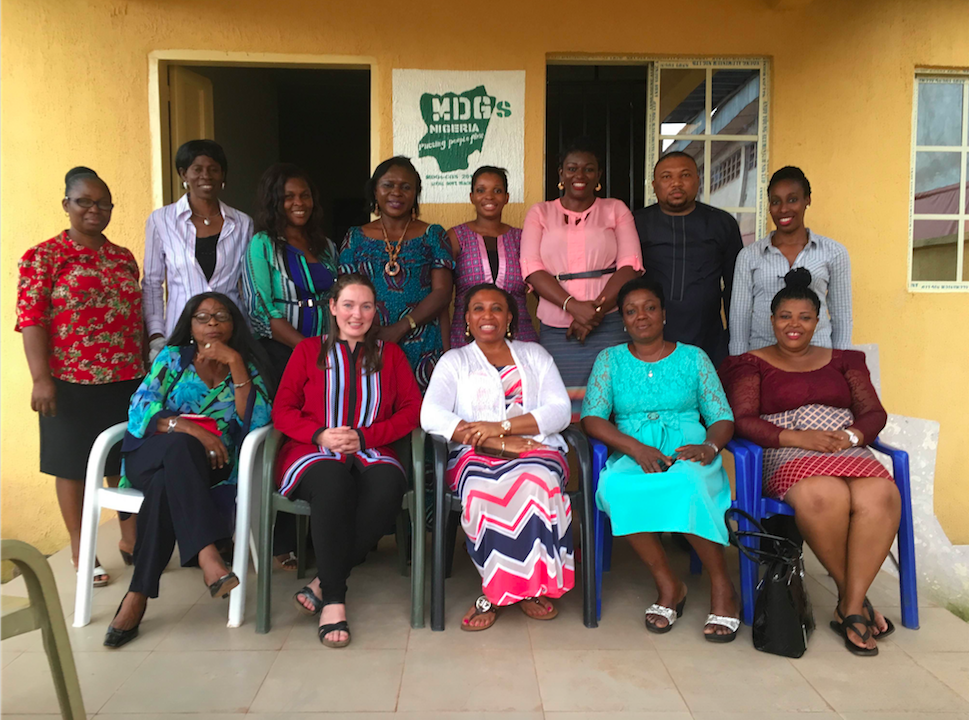
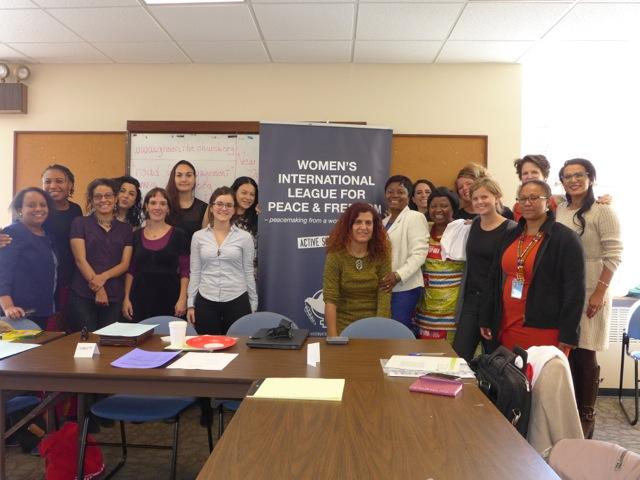

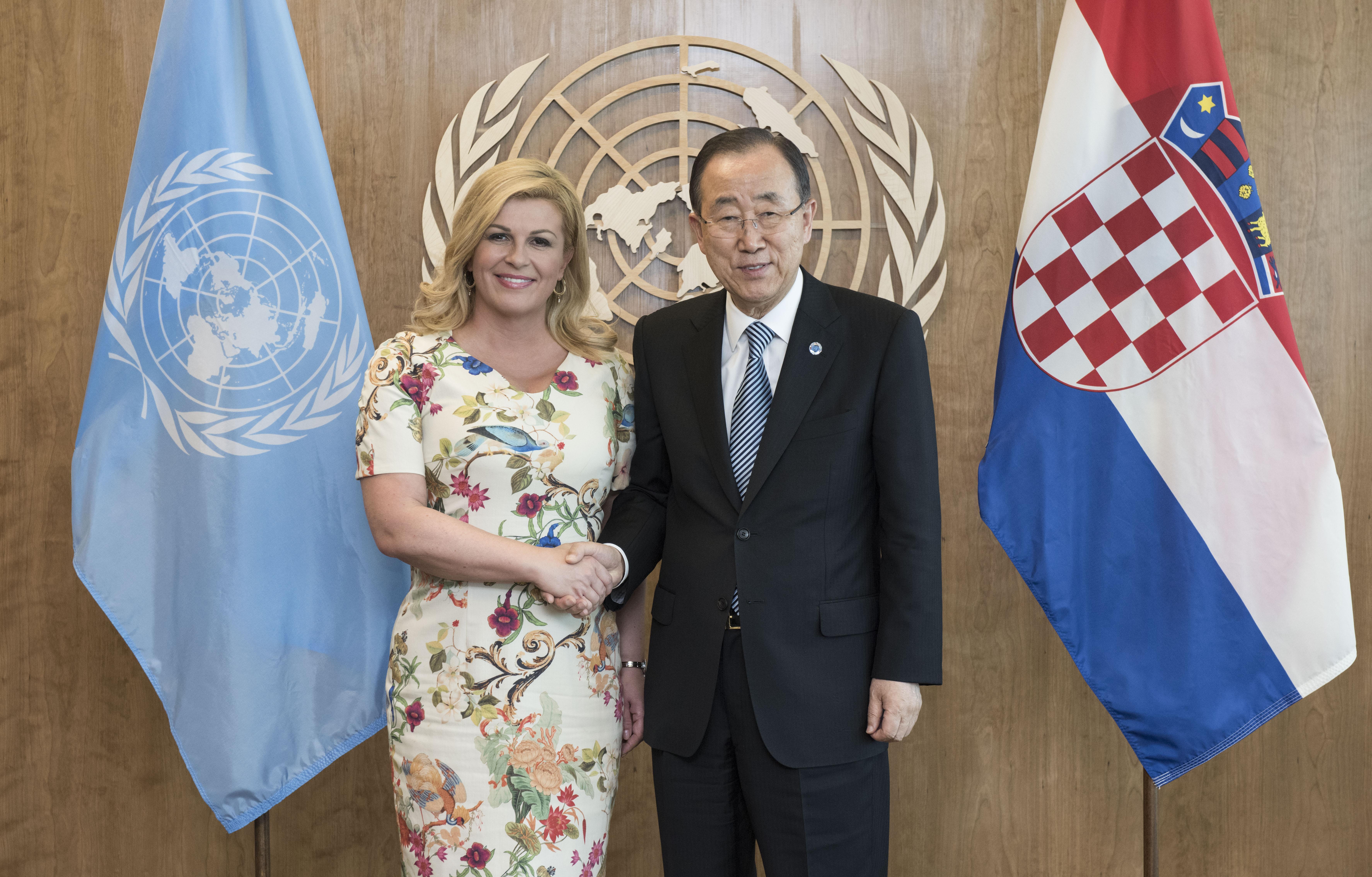
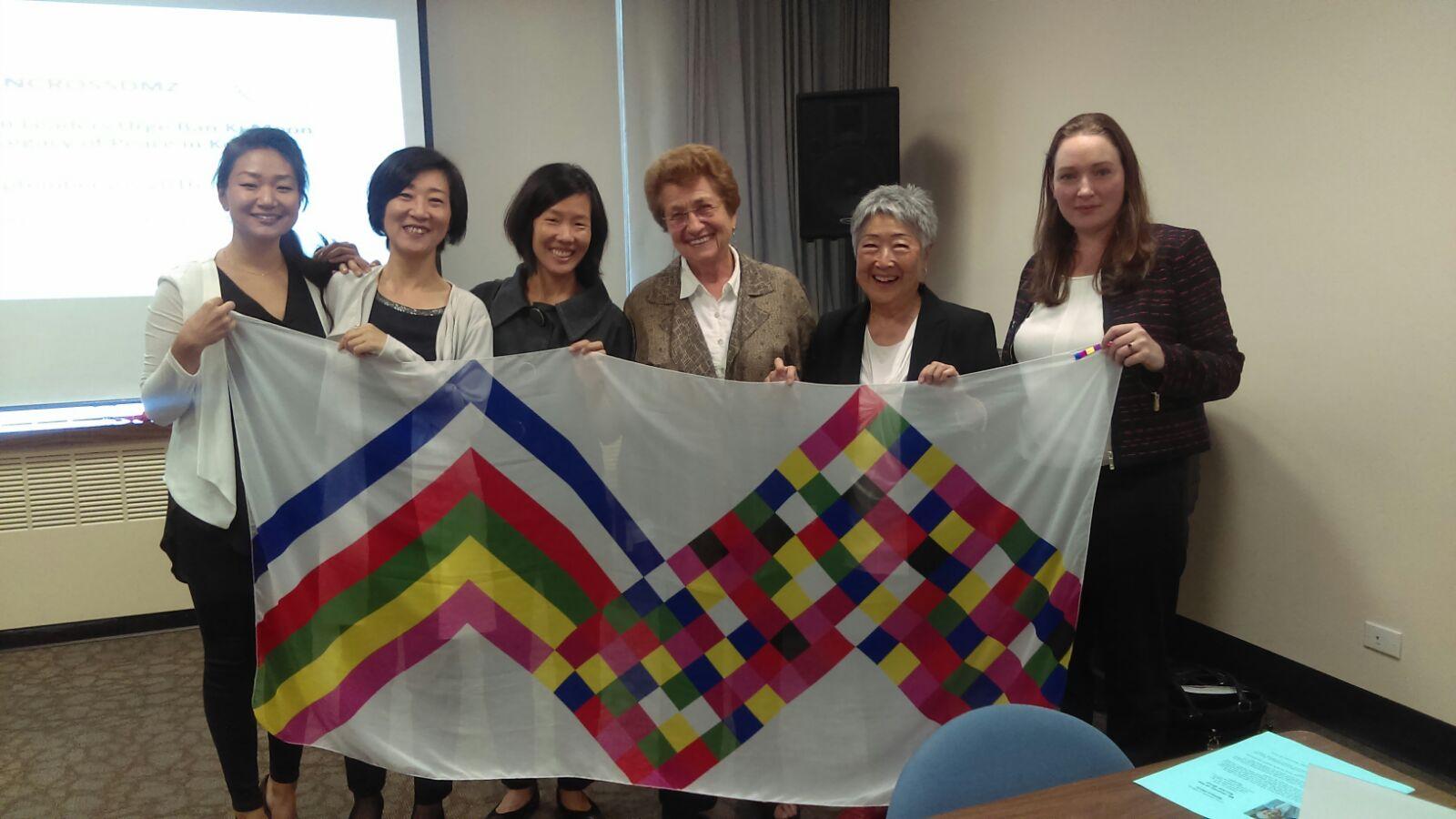
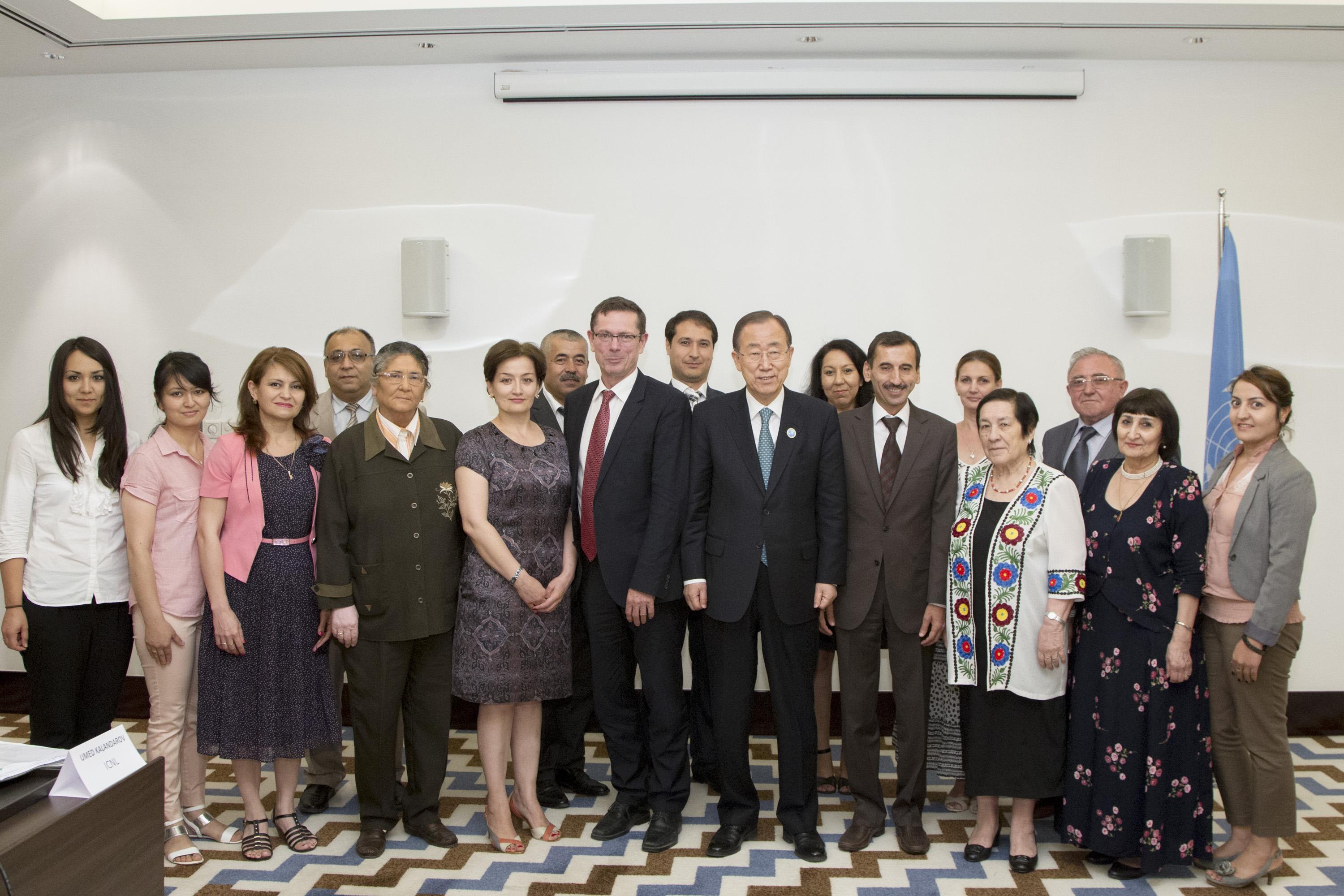
WILPF Initiatives
Open Letter To UN Secretary-General To End The Korean War
Despite The Loss Of “Yes” In The Colombian Referendum, Women Continue To Resist And Promote Peace In Colombia
WILPF Creates A Common Space For Women Activists From MENA Conflict Countries
Open Letter To Permanent Representatives To The UN: Recommendations On The Security Council Open Debate On Women, Peace and Security
Statement By Members Of The Women’s Major Group On The Appointment Of The New Secretary General Of The United Nations
WPS Scorecard Press Release: New initiative To Boost Holistic Action For Women, Peace And Security
#UNGA71 First Committee On Disarmament
Reports, Resources & Policy Briefs
We’re Failing To Provide Protection To Female Refugees.
PRIO Centre: Integrating Gender Into Foreign Policy
The Colombia “NO” Vote: The End Of This Peace Deal Must Not Be The End Of The Peace Process
External Initiatives
New UNFIL Initiative To Ensure Gender Perspective In Host Communities
Jacqui True's Talk On The Political Economy Dimensions Of Peacebuilding And The Long-Term Prevention Of Violence
Blood Mica: Deaths Of Child Workers In India’s Mica “Ghost” Mines Covered Up To Keep Industry Alive
Cora Weiss Fellowship For Young Women Peacebuilders
Women Take The Stage